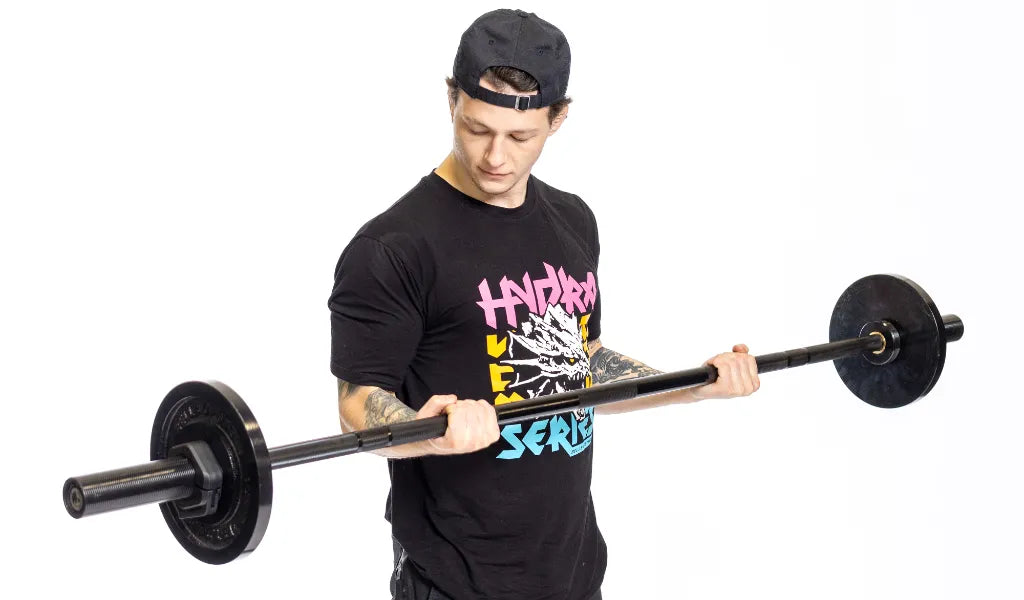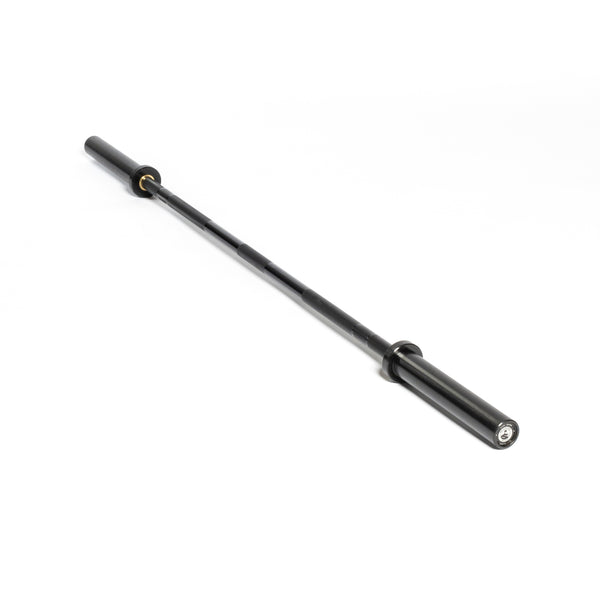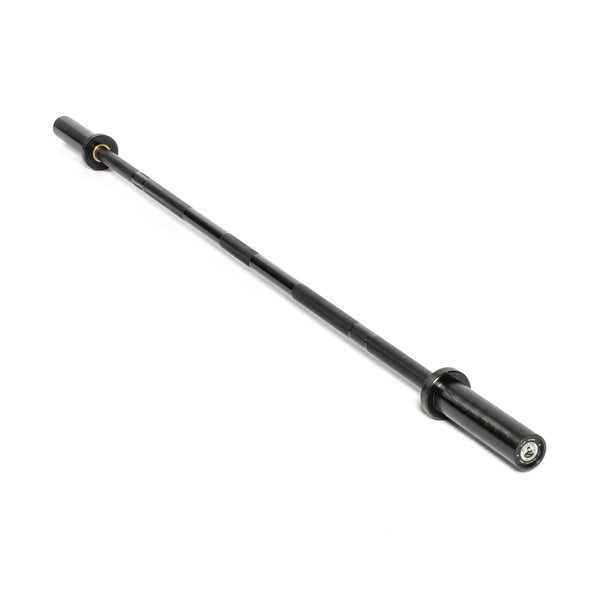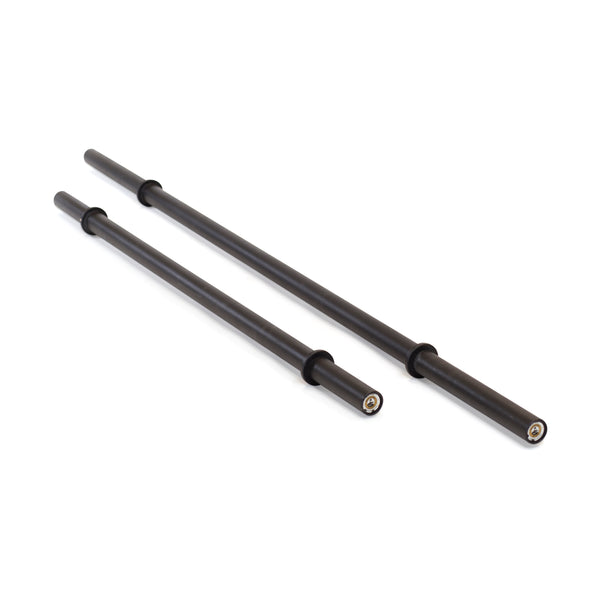In the world of home gyms, not all barbells are created equal, and not just when it comes to knurling, whip, or tensile strength. One of the biggest choices lifters face is whether to go for a short barbell or stick with the traditional long barbell.
The good news? Both have their place in a well-equipped home gym. The trick is figuring out which one fits your goals and your space.
Let’s break down the key differences between short and long barbells, the pros and cons of each, and how to decide which one deserves a spot on your barbell rack.
What’s the Difference Between Short and Long Barbells?
Barbell length and size comparison
A long barbell, also known as a standard Olympic barbell, typically measures around 86.6 inches (7.2 feet) and weighs 20kg (44 lbs). This barbell fits across most racks, has a standard 16-inch loadable sleeve, and is used in general lifting, Olympic lifting, and most commercial gym settings.
A short barbell trims the fat, usually coming in around 69 to 72 inches, with sleeve lengths ranging from 6.5 to 9.75 inches, depending on whether it's rackable or not. Short barbells can weigh anywhere from 15kg (33 lbs) to 20kg, depending on the design.
Rackable vs. Non-Rackable Short Barbells
Not all short barbells are created equal. One major detail? Rackability.
-
A non-rackable short barbell is too narrow to fit across most standard squat racks or power racks. Great for curls, rows, or landmine work, but not squats or bench pressing.
-
A rackable short barbell is specifically designed to fit inside a rack while still saving space. It typically has shorter sleeves but retains a standard shaft length, so it feels familiar in your hands.
Bottom line: If you're planning to squat or bench with your barbell, rackability is non-negotiable.
Pros and Cons of Long Barbells
Why choose a standard barbell?
Pros:
-
Universal compatibility with racks and attachments
-
Longer loadable sleeves for more weight capacity
-
Better for heavier lifts and competition-style training
-
Versatile for all lifts including squats, deadlifts, bench press, and overhead press
Cons:
-
Takes up more space in tight home gyms.
-
Not ideal for small workout areas or apartment setups.
-
May be overkill for beginners or casual lifters.
Pros and Cons of Short Barbells
Why choose a short barbell?
Pros:
-
Compact and space-saving—perfect for tight home gyms, apartments, or basement setups.
-
Easier to maneuver and store, especially in low ceilings or narrow rooms.
-
Lighter overall, which can be helpful for beginners or mobility work.
-
Great for accessory lifts, curls, rows, and landmine training.
Cons:
-
Limited sleeve space = less weight capacity.
-
Non-rackable versions can’t be used for bench press or squats.
-
May not have the same “feel” as a full-length barbell during heavy compound lifts.
Which Barbell is Best for Your Setup?
Consider your goals, space, and training style
If your training space is tight and you don’t need to push max weights, a short barbell—especially a rackable short bar—can be a smart investment. It gives you the feel of a full bar in a smaller footprint, which is ideal if you’re working out in a cramped garage, condo, or multi-purpose room.
If you're a powerlifter, serious strength enthusiast, or just like to load up the plates, a long barbell is your go-to. The longer sleeves give you room to grow (literally and figuratively), and the full rack compatibility means you can train everything from deadlifts to heavy bench with no compromises.
Want the best of both worlds? Many lifters keep both in their home gym—using the long barbell for big lifts and the short barbell for accessory work, lighter days, or when they need a bit more wiggle room.
Final Thoughts
Whether you go long or short, the right barbell is the one that fits your space, supports your goals, and gets used consistently. If space is limited, don’t sleep on the rackable short bar—it’s a compact powerhouse that can do more than most give it credit for.
Just remember: check your rack compatibility, plan your plate needs, and don’t let a few inches be the reason your gains get cut short.



